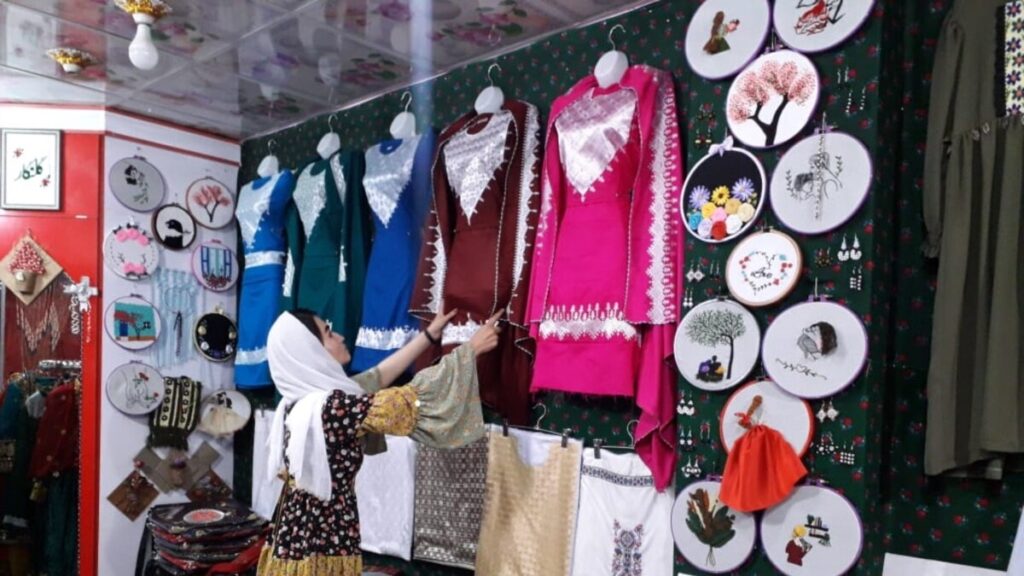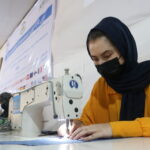Author: Mahdi Mozaffari
The factors influencing women’s entrepreneurship can be examined through four dimensions: individual, cultural, economic, and social. In the previous issue, the individual factors affecting women’s employment were discussed. It was noted that attention to motivations, personality traits, and demographic characteristics of women in the employment sector is crucial, as all these components create the necessary conditions for women’s presence in the workforce or pose obstacles to their participation. In this issue, we will explore the cultural factors that contribute to both the advancement and regression of Afghan women’s employment.
The Destructive Impact of Authoritarian and Patriarchal Culture on Women: Analyzing Various Dimensions
Authoritarian and patriarchal culture is rooted in traditional beliefs and gender stereotypes that have long overshadowed Afghan society. This culture, with its unequal gaze on girls from childhood, diverts their upbringing and socialization paths, leaving destructive consequences on their self-esteem, identity, and abilities.
Upbringing under Patriarchy: A Wound on the Identity and Abilities of Girls
Patriarchy, deeply woven into the fabric of Afghan culture, casts a shadow not only over social and political structures but also infiltrates the most subtle layers of child-rearing and education, leaving adverse effects on the girls of this country. Below are some of these consequences:
- Erosion of Self-Esteem: From the earliest years of life, derogatory and limiting messages about their place and abilities begin to be imposed on girls. These destructive beliefs, transmitted through family, school, and society, undermine girls’ self-esteem and hinder the flourishing of their innate talents and abilities. Girls exposed to such messages lack self-belief and lose the courage to express themselves and pursue their interests and goals.
- Deepening Feelings of Inferiority and Low Self-Worth: Gender discrimination manifested in the behaviors and words of those around girls gradually becomes internalized, fostering feelings of inferiority and low self-worth. Derogatory labels, unequal comparisons with boys, and imposed limitations in various fields damage girls’ self-esteem and impede their growth in academic, social, and personal spheres. This sense of inferiority not only hinders girls’ progress but can also lead to depression, anxiety, and other mental health issues.
- Restrictions on Choices: Patriarchal culture strips girls of freedom and choice by imposing predetermined roles on them, dragging their life paths backward. In these societies, girls are expected to take on solely household duties and childcare responsibilities, depriving them of the opportunity to pursue their interests and talents in other areas. These restrictions not only stifle the potential of girls but also harm society as a whole by failing to utilize half of human capabilities and creativity for progress and development.
Upbringing under patriarchy is a deep wound on the identity and abilities of girls. To free ourselves from these harms and build a just and equal society, it is essential to combat discrimination and patriarchal beliefs, providing girls with opportunities to flourish their talents and abilities in a free and unrestricted environment.
Rooted Discrimination in Women’s Employment
In a world that claims to advocate for equality and justice, gender discrimination in employment remains a deeply entrenched issue in certain countries (such as Afghanistan). A biased perspective on gender divides all job opportunities into two categories, depriving women of half of their natural rights.
This discrimination acts as a thick veil of darkness over the eyes of employers, ignoring the competencies and capabilities of women. Talents remain hidden in the shadow of gender biases, leaving half of society deprived of opportunities for growth and flourishing.
Many Afghan women are deprived of employment and livelihood. The minority of Afghan women who are part of the workforce face blatant discrimination. The double oppression faced by working women manifests itself in clear disparities regarding rights and benefits. Unequal wages, minimal benefits, and poor working conditions inflict deep wounds on the fabric of workplace justice, trampling on women’s basic rights.
This discrimination is a blatant injustice that not only jeopardizes women’s livelihoods and well-being but also undermines their value and respect within society.
Fighting Against Barriers to Women’s Employment Advancement
The path to progress and excellence for working women is fraught with invisible obstacles. It feels as if there is a glass ceiling above them that prevents them from soaring and achieving their potential.
Gender biases strip women of equal opportunities for growth and advancement, placing them in an unjust situation. Their talents and abilities are overlooked, while invisible barriers are erected in their path to progress.
Gender discrimination in employment is a profound and rooted challenge that targets justice, meritocracy, and the basic rights of women. As long as this unequal perspective prevails, half of society will remain deprived of equal opportunities, and the flourishing and growth of society will be jeopardized under the shadow of this discrimination.
A long road lies ahead, and eradicating this issue requires steadfast determination and collective effort from all segments of society, including employers, lawmakers, and government officials.
Promoting a culture of equality, implementing supportive laws, and creating equal opportunities are essential steps toward eliminating gender discrimination in employment and ensuring women’s rights.
Education and Awareness: Raising awareness and knowledge among women about their rights, identity, and capabilities is a fundamental step toward empowering them and freeing them from the shackles of patriarchal culture.
Support for Women’s Organizations: Strengthening and supporting women’s unions and civil organizations provides a platform for their active participation in social, cultural, and political arenas, amplifying their voices to the world.
Changing Attitudes: Transforming traditional and patriarchal attitudes within families, schools, and society requires collective and comprehensive efforts so that girls and women can thrive in an environment free from discrimination and inequality.
Liberation from patriarchal culture is not only an undeniable necessity for women but also a vital step toward building a just, developed, and humane society for all members of the community.
We must all join hands to create an environment where every member of society can flourish, regardless of gender, and witness an Afghanistan where justice and equality take precedence.













